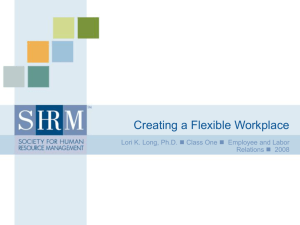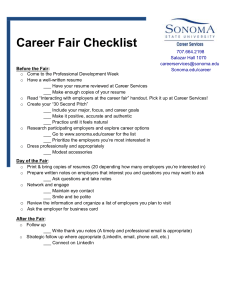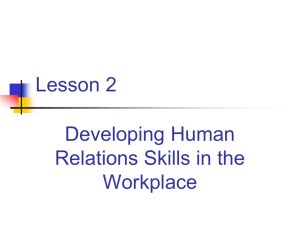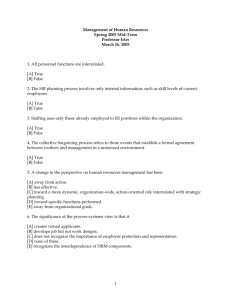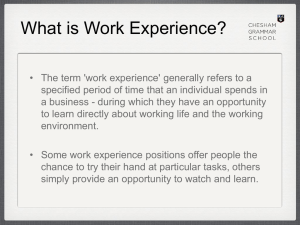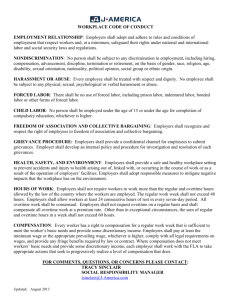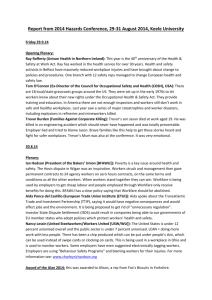The Growing Mental Health Problem
advertisement
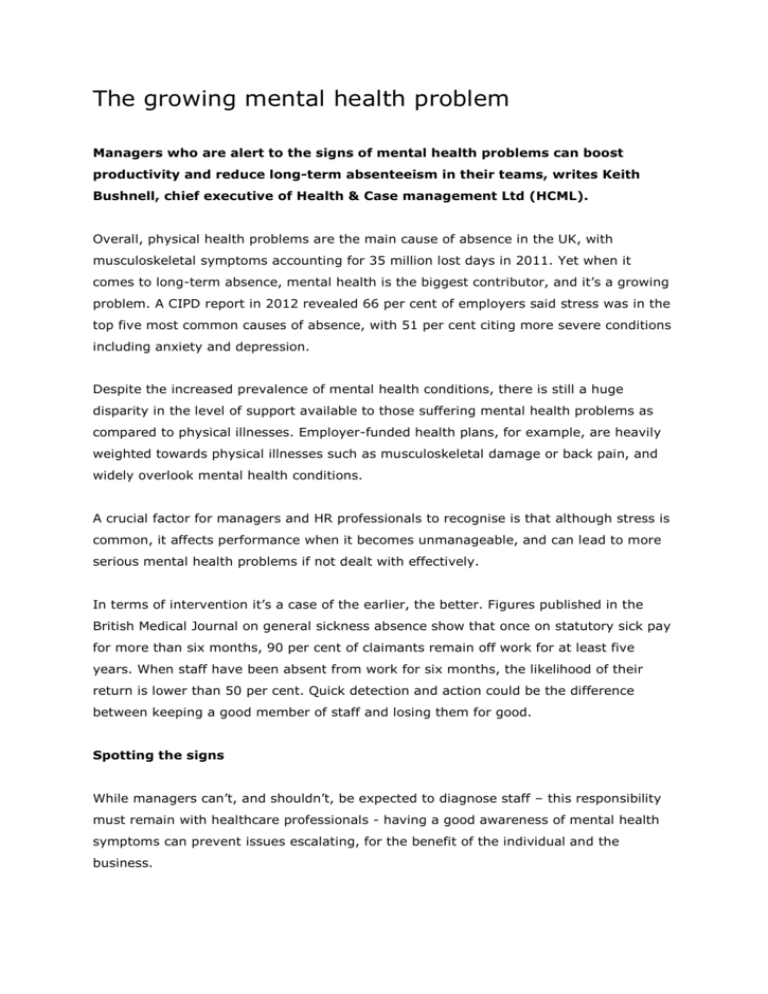
The growing mental health problem Managers who are alert to the signs of mental health problems can boost productivity and reduce long-term absenteeism in their teams, writes Keith Bushnell, chief executive of Health & Case management Ltd (HCML). Overall, physical health problems are the main cause of absence in the UK, with musculoskeletal symptoms accounting for 35 million lost days in 2011. Yet when it comes to long-term absence, mental health is the biggest contributor, and it’s a growing problem. A CIPD report in 2012 revealed 66 per cent of employers said stress was in the top five most common causes of absence, with 51 per cent citing more severe conditions including anxiety and depression. Despite the increased prevalence of mental health conditions, there is still a huge disparity in the level of support available to those suffering mental health problems as compared to physical illnesses. Employer-funded health plans, for example, are heavily weighted towards physical illnesses such as musculoskeletal damage or back pain, and widely overlook mental health conditions. A crucial factor for managers and HR professionals to recognise is that although stress is common, it affects performance when it becomes unmanageable, and can lead to more serious mental health problems if not dealt with effectively. In terms of intervention it’s a case of the earlier, the better. Figures published in the British Medical Journal on general sickness absence show that once on statutory sick pay for more than six months, 90 per cent of claimants remain off work for at least five years. When staff have been absent from work for six months, the likelihood of their return is lower than 50 per cent. Quick detection and action could be the difference between keeping a good member of staff and losing them for good. Spotting the signs While managers can’t, and shouldn’t, be expected to diagnose staff – this responsibility must remain with healthcare professionals - having a good awareness of mental health symptoms can prevent issues escalating, for the benefit of the individual and the business. The key imperative for employers of all sizes is to have the ability to identify struggling workers and help them to stay at work or facilitate a graduated return to work as early as possible and, where appropriate, resort to medical care if absolutely necessary. This requires an evidence-based approach to managing the relevant obstacles to full participation. It is inevitable that, whatever the workplace, staff will experience common health problems. It is crucial to initially distinguish between genuine concerns – such as signs of severe stress of anxiety – with informal ‘grumbles’ which are usually made flippantly, and occur regularly. Line managers are responsible for making this distinction and taking appropriate action on those cases which could become more severe if not dealt with rapidly. This is not an enviable task because mental health symptoms can be very difficult to pinpoint; no two members of staff are the same, and each day is different from the last, so there is no simple formula or checklist. Broadly speaking, employees may have mental health problems at work if they are: Working more slowly than usual Missing deadlines Calling in sick frequently Increasing absenteeism or presenteeism Expressing irritability and anger Having difficulty concentrating and making decisions Appearing numb or emotionless Withdrawing from work activity Overworking Forgetting directives, procedures and requests Having difficulty with work transitions or changes in routines Rehabilitation and return to work As managers, the most effective way to approach mental health problems once they have been diagnosed by a healthcare professional is to provide individuals with the tools to independently manage their psychological symptoms, and return to work sustainably. Too often this important mix is not provided with employers either because of a lack of clinical knowledge, an inability to take action or because problems are ignored or take too long to be resolved. Crucially, managers must remain at the heart of the process and have access to all of the available data. While tools such as employee assistance programmes (EAPs) have some merits, they are confidential by nature and do not allow the employer to make decisions based on evidence, unless information is volunteered by the employee. Such an approach is not conducive to quick recovery as it removes transparency from the process which can help employers make reasonable adjustments. If workplace adjustments or special arrangements are required, they should always be planned for as temporary (that is, the employee, line managers and colleagues should be expecting recovery). Think days or a week at a time, not months. Workplace changes that are open-ended or long-term do not set the right expectations, and create a mindset which can encourage unnecessary absence. In the management of staff illness it is essential that employers avoid ‘over-medicalising’ common health problems and minor injuries. The majority of psychological symptoms improve without intervention and do not require extended rest, time off work or health treatment. In many cases, self-help advice including web-based support can be sufficient, which saves employers substantial costs associated with unnecessary medical treatment and absence. The crucial factors are openness and transparency. As managers, this will be second nature to most, but subjects as delicate as mental health can be more difficult to broach than others. Nevertheless, when productivity and staff retention is at stake, early intervention is crucial, and managers must be prepared for frank dialogue. For more information visit www.hcml.co.uk ENDS For further press information, please contact: Max Hammond: max.hammond@gravitaspr.co.uk, T:01242 211000, M:07747321790
